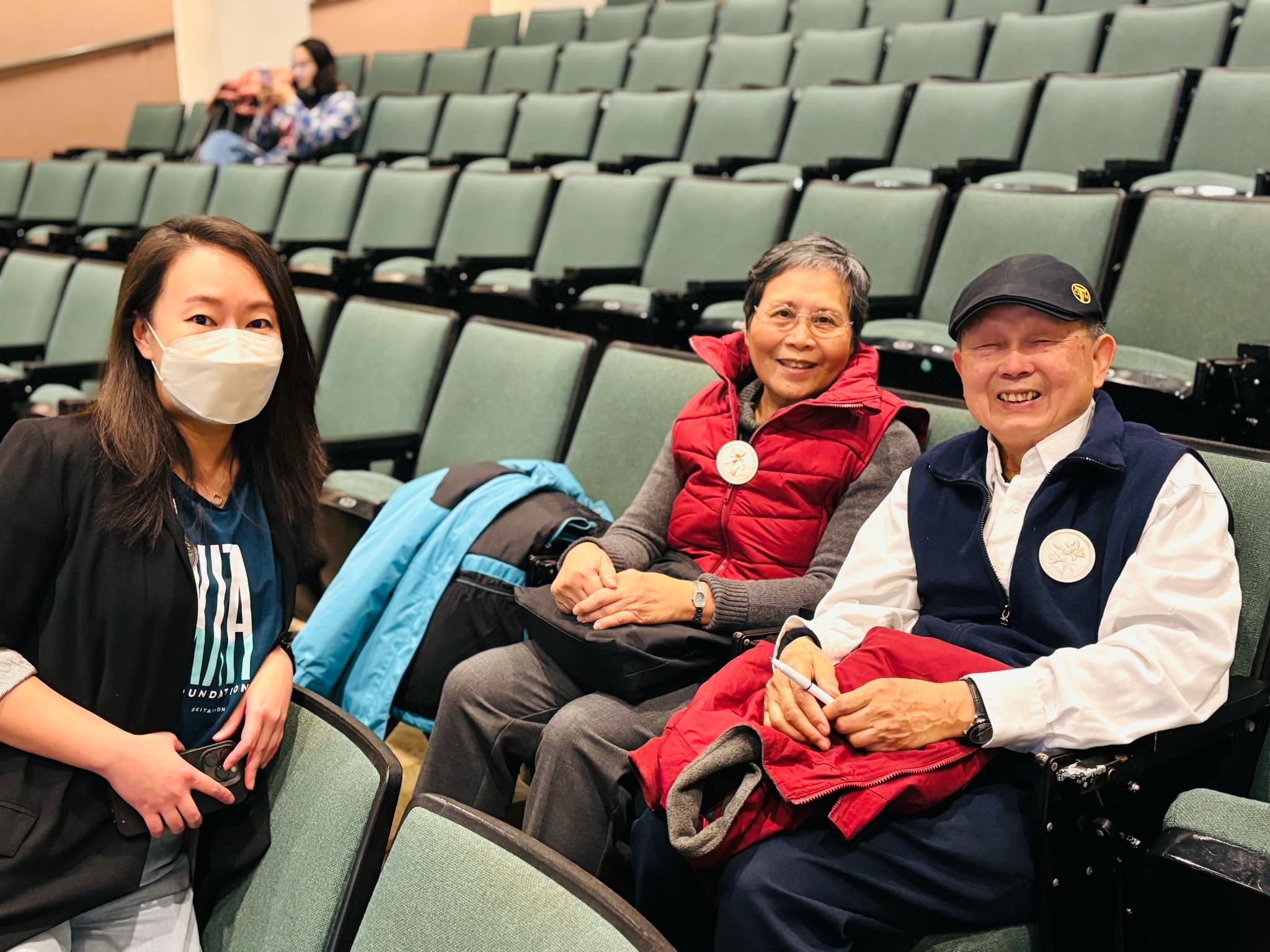Reflecting on the 78th Anniversary of the February 28 Massacre in Taiwan
To commemorate the February 28 Massacre of 1947 in Taiwan, KITA partnered with a number of groups in Pittsburgh to hold a documentary screening of <After Spring, The Tamaki Family…>. We invited friends in Pittsburgh to join us to watch the documentary, reflect on Taiwanese identity, share the significance of the February 28 Incident, promote transitional justice, and safeguard Taiwan's future.
KITA Foundation President Sabrina Liu opened the event by sharing a story about her grandfather. Sabrina’s grandfather was an art teacher in an elementary school. One of her most vivid childhood memories is spending summer vacations at her grandparents' home in the countryside. On hot summer nights, she would watch Bob Ross paint “happy little trees” on PBS with her grandfather . Her grandfather, a native Hakka speaker, was born during the Japanese colonial period in Taiwan, so he had to learn to speak Japanese in school.
This was the first time Sabrina's grandfather learned a language other than his mother tongue. This also set the historical backdrop for the documentary After Spring, The Tamaki Family…, where a farming couple migrated to Ishigaki Island in Okinawa, Japan, for survival.
In 1949, after retreating to Taiwan following their defeat in the Chinese Civil War, many refugees who followed the Nationalists needed jobs. This threatened her grandfather’s teaching position.
“My grandpa was told that he had just months to learn Mandarin Chinese. Otherwise he would lose his teaching job, and his way of supporting his family,” said Sabrina.
When Sabrina's grandfather was forced to learn his third language—Mandarin—in just a few months, it stemmed from the power and control of settler colonialism. This began with the February 28 Massacre 78 years ago, as the Nationalists sought to expand their power, control the colony of Taiwan, exploit its resources, and erase its languages, memory, and entire generation of people who would speak truth to power.
“That’s why today we invite you to wear this white lily button to commemorate the 228 Incident, and the nearly 45 years of brutal political repression and state violence that followed in Taiwan,” said Sabrina.
White lilies symbolize purity, rebirth, freedom and resilience. All participants wore these white lily buttons to commemorate the 228 Massacre of 1947 and the subsequent White Terror period from 1949 to the 1990s of state violence and political repression in Taiwan. Special thanks to North America Taiwanese Women's Association (NATWA) for sharing these buttons!
We are also honor to have Chu-Wen Hsieh (謝竹雯), a PhD candidate in the Department of Anthropology at the University of North Carolina, join the post-screening discussion. Chu-Wen’s research focuses on military bases, social movements, nationalism, and Okinawa and Japan. Chu-Wen’s insights from her fieldwork and research added to the depth of discussions as participants pondered about their family identities as Taiwanese expats and Taiwanese Americans.
We appreciate the partnership of Café Philo Pittsburgh, Taiwan International Democratic Film Festival (TIDFF), Taiwanese Scholar Society in Pittsburgh (TSS) and Taiwan Aloha.
Hope to see your participation in our future events!







